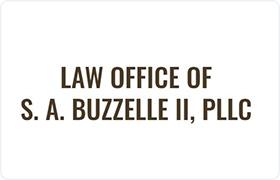Phoenix Bankruptcy & Debt Lawyer, Arizona
Sponsored Law Firm
-
 x
x

Click For More Info:
-
Law Office of S.A. Buzzelle II, PLLC
14050 N 83rd Avenue Suite 290 Peoria, AZ 85381» view mapBankruptcy & Debt Law Your Trusted Bankruptcy Attorney
If you are in need of legal services for matters relating to bankruptcy and divorce, rely on Law Office of S. A. Buzzelle II, PLLC in Peoria, AZ.
800-873-4991
Michael J. Fuller
✓ VERIFIEDIn 1988, I started my own firm without any clients but with a steadfast commitment to practice law consistent with my own ideals and personality. I tr... (more)
Carl R Retter
✓ VERIFIEDCarl is able to provide unique focus to every case. There is no “middle-man” – you speak directly with him, ensuring no case details are lost in... (more)
Sean Robert Forrester
✓ VERIFIEDSean Forrester, managing attorney at Lerner and Rowe Law Group, has made a career advocating for the rights of the citizen accused. Mr. Forrester has ... (more)
Alison C. Briggs
✓ VERIFIEDAlison Briggs is very knowledgeable and efficient. She really cares about her clients needs. No situation is ever too difficult for her to handle. Mis... (more)
Brad A Denton
✓ VERIFIEDBrad represents primarily small businesses, and so he practices primarily in the areas of law that small businesses need. As a practical matter, Brad ... (more)
Mark Atchley
✓ VERIFIEDWhile attempting to keep to a budget and redistribute debt payment in order to keep your family fed or run your business, bills will continue to pile ... (more)
Peter H Westby
FREE CONSULTATION
CONTACT Stanley A. Buzzelle II Peoria, AZ
Stanley A. Buzzelle II Peoria, AZ Practice AreasExpertise
Practice AreasExpertise







